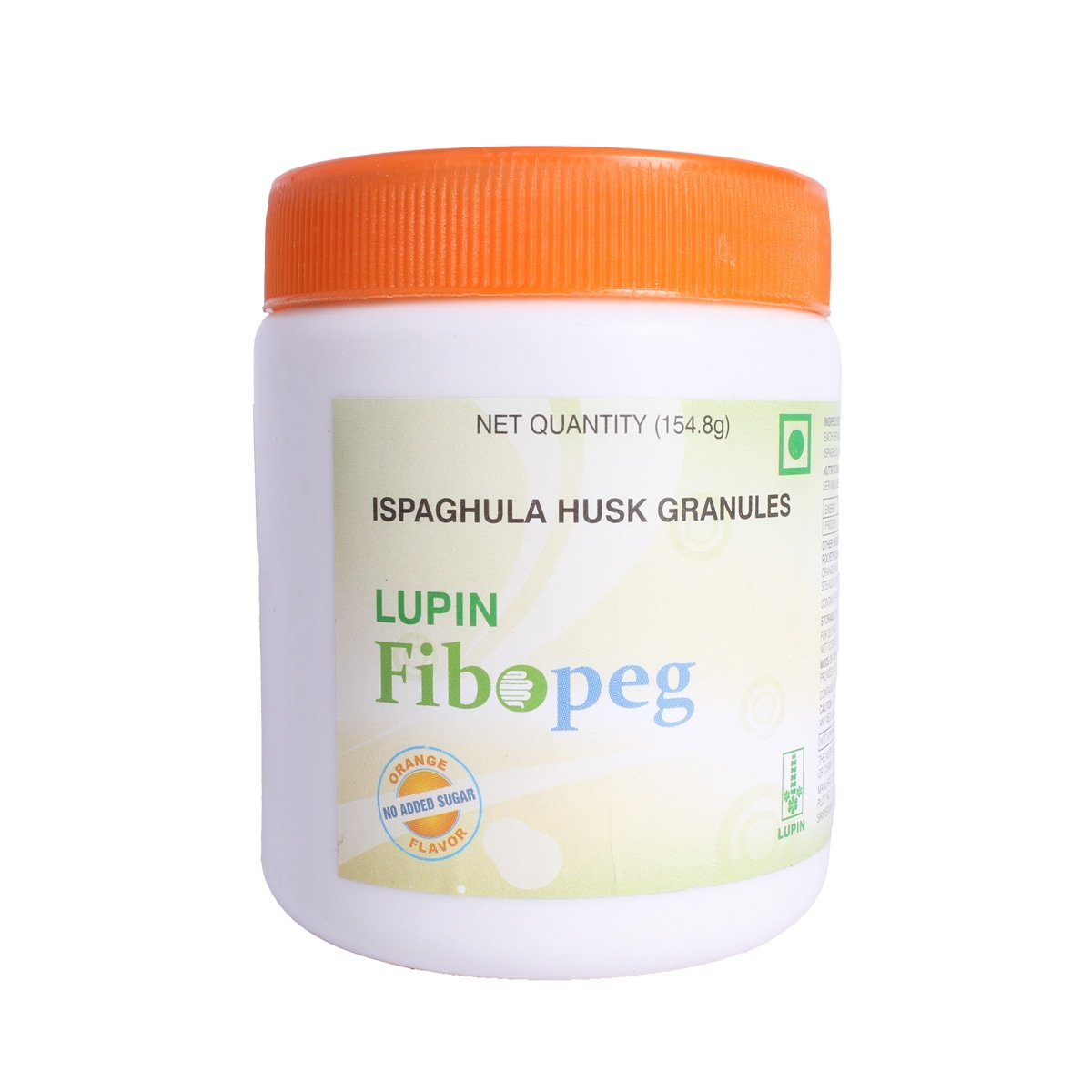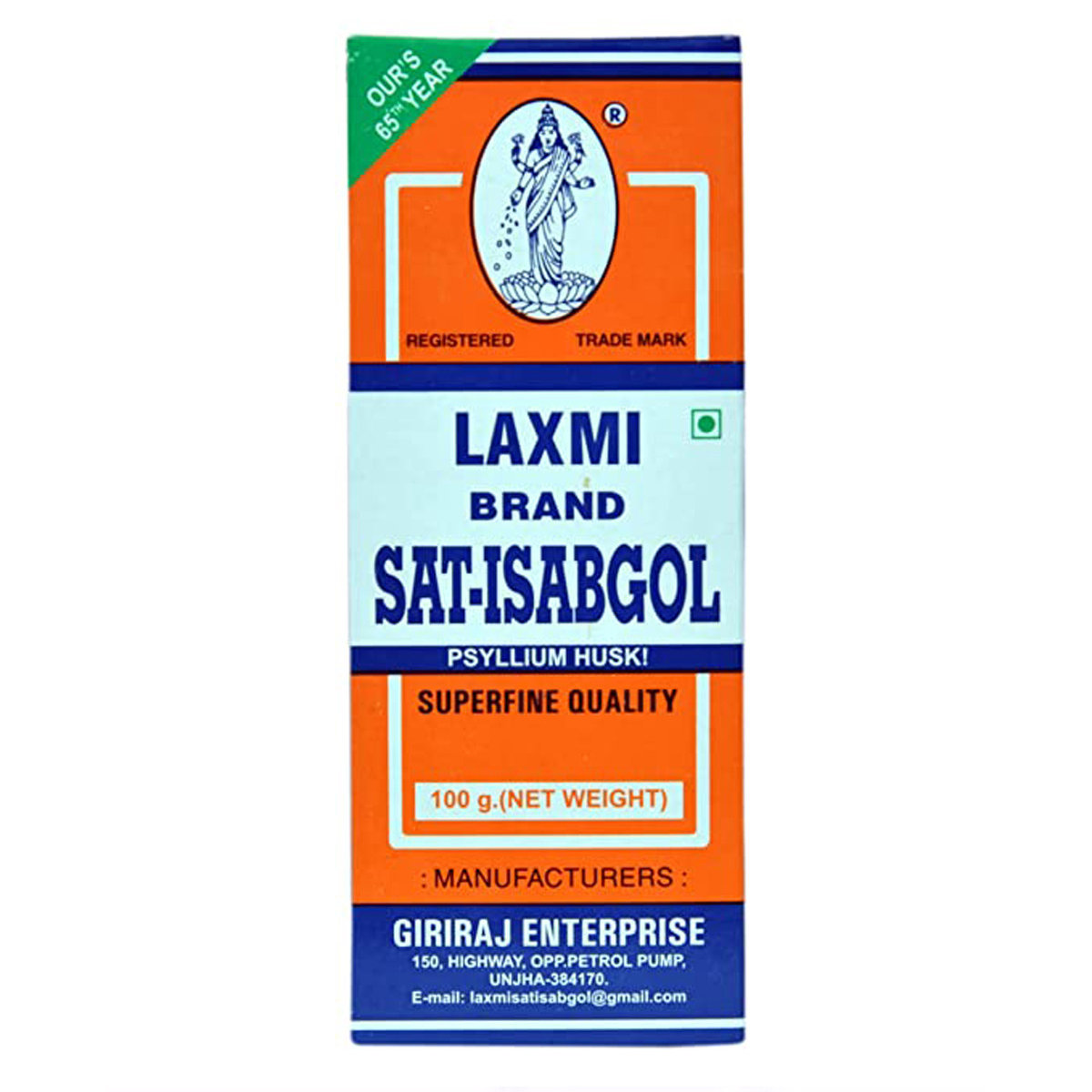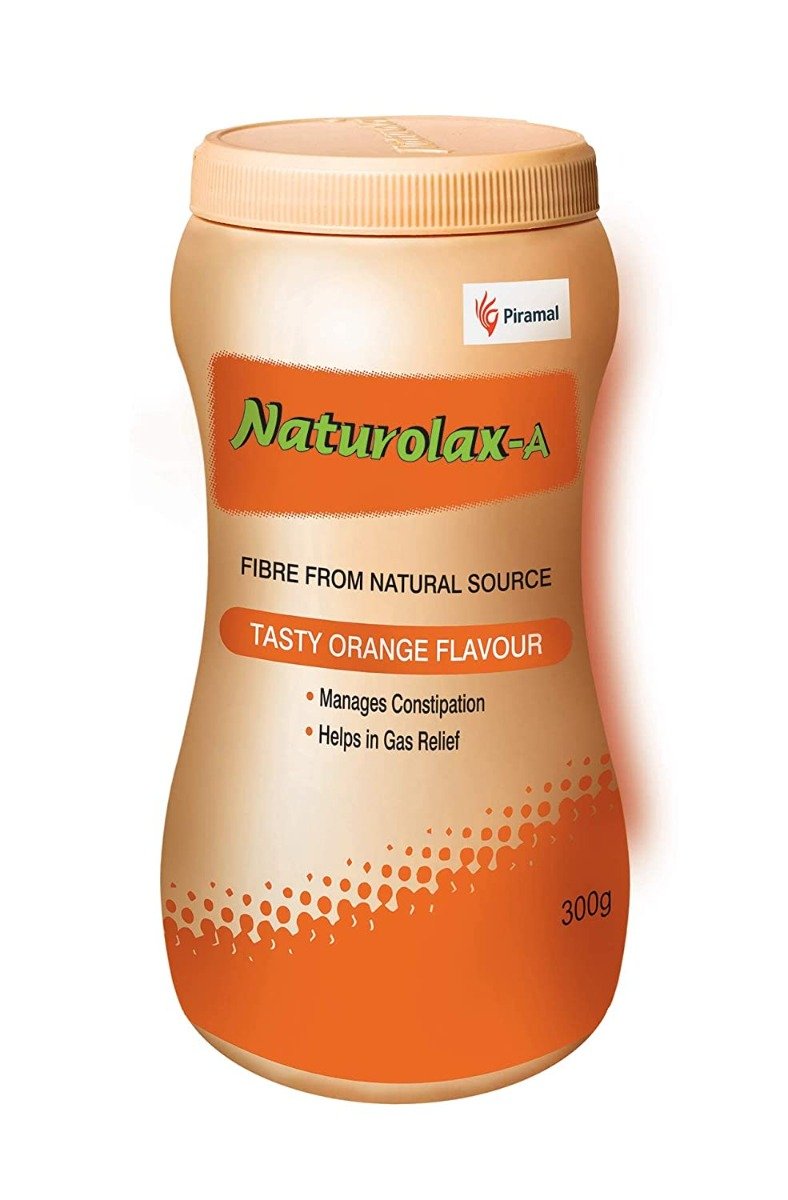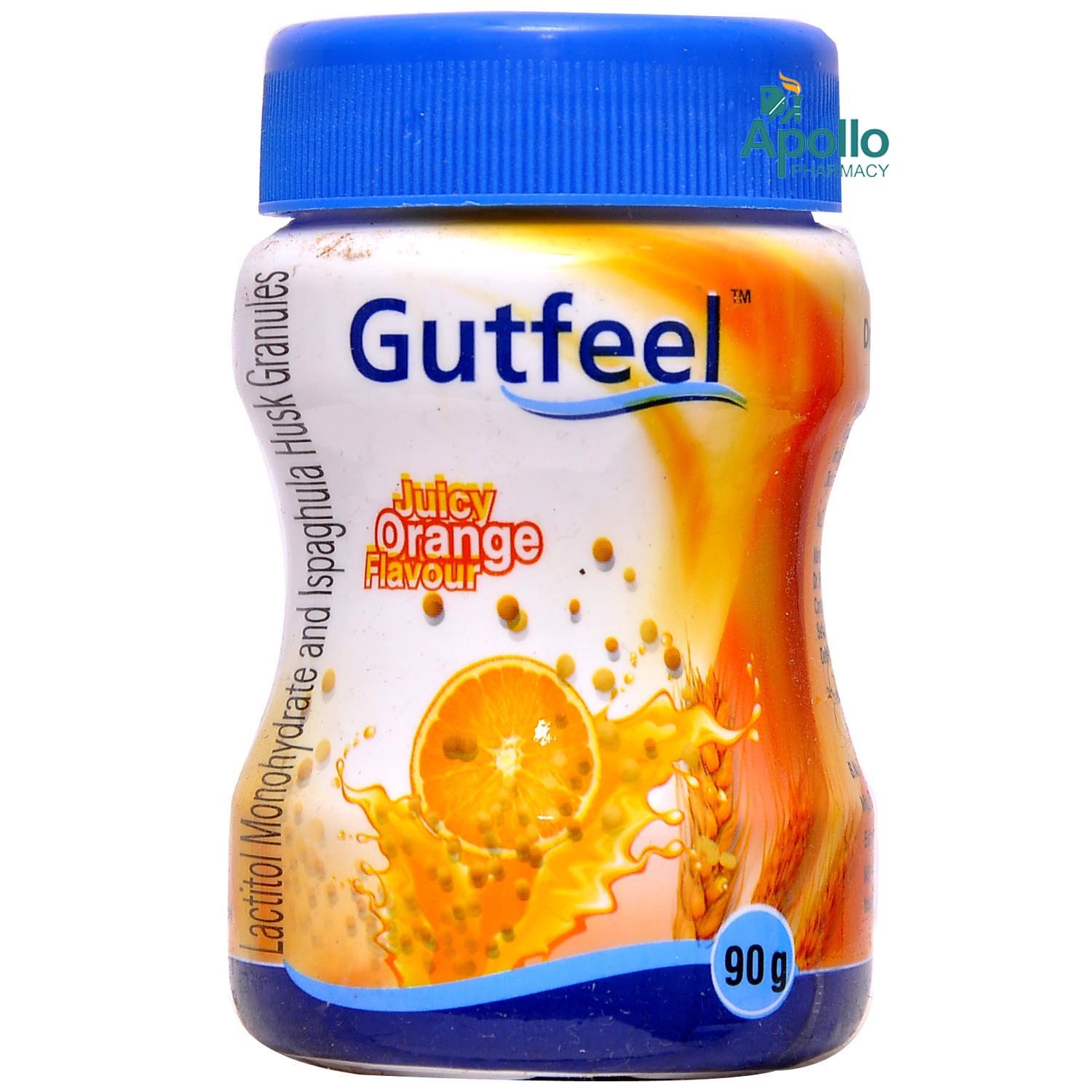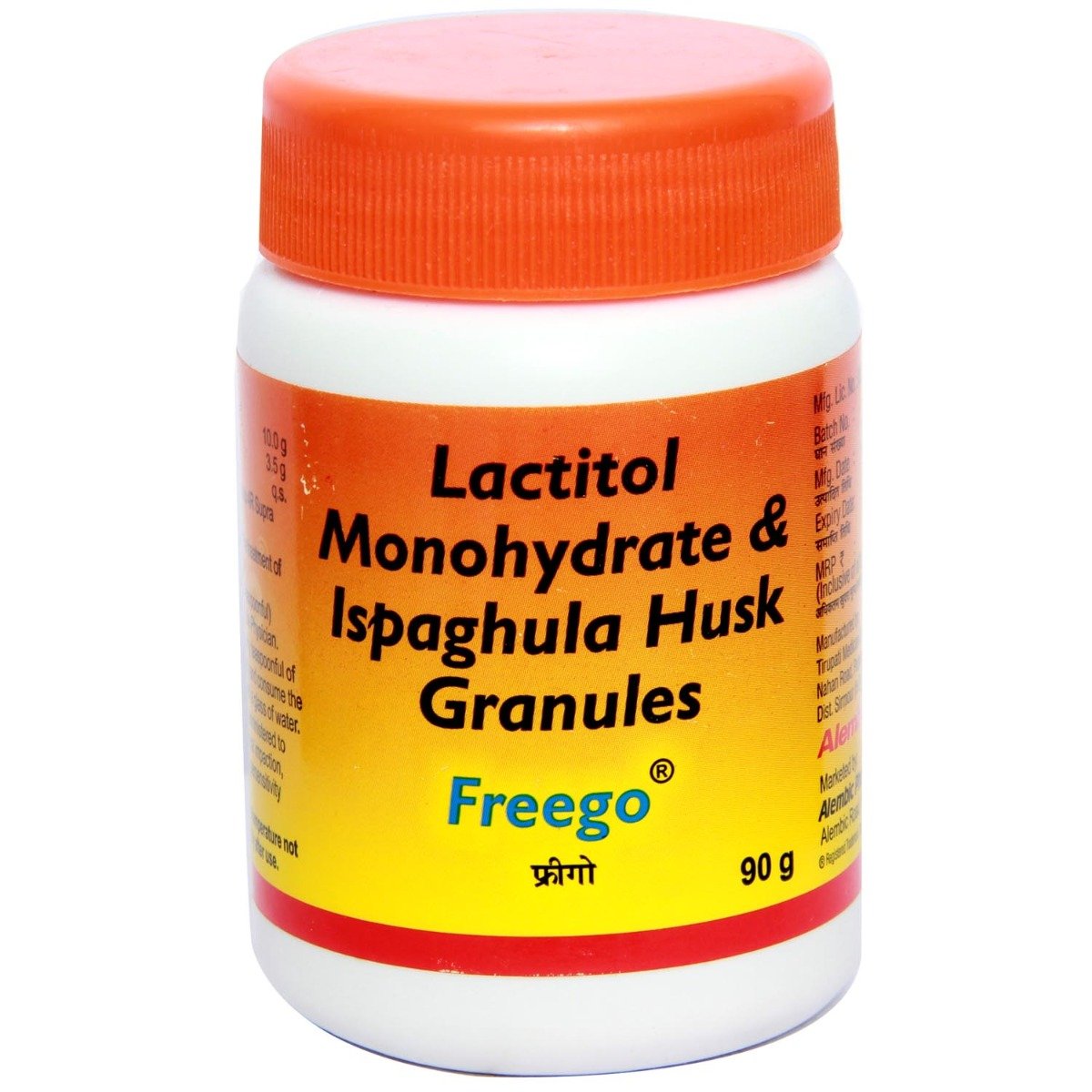Ispaghula Husk
About Ispaghula Husk
Ispaghula Husk belongs to the group of 'laxatives', primarily used to treat constipation and indigestion. Constipation is a condition that occurs when a person has lesser bowel movements and has difficulty in passing the stools (faeces). Indigestion is the inability to digest the food that is associated with pain and discomfort in the stomach.
Ispaghula Husk contains Ispaghula husk, a dietary fibre. It is the seed coat obtained from the plant Plantago ovata Forssk. Ispaghula Husk, when mixed with water, produces a gel-like substance. This gel easily passes through the digestive system and increases the water content in the stools. Ispaghula Husk further increases the bowel movements and lubricates the intestine for easy passage of stools.
Please take Ispaghula Husk in the dose and duration advised by your doctor based on your medical condition. Ispaghula Husk is generally safe to use. However, some may experience side effects like wind and bloating due to the sudden increase in fibre intake. Exposure of Ispaghula husk on the skin or its inhalation may cause skin rash and runny or itchy nose. Although not everyone experiences these side effects, if they occur, please seek medical attention.
Let your doctor know if you have any stomach or intestinal blockage, appendicitis, swallowing problems, rectal bleeding, diabetes, phenylketonuria (increased levels of an amino acid called phenylalanine), and reduced bowel movements before starting Ispaghula Husk. Ispaghula Husk is to be taken with enough liquid, since it may lead to difficulty swallowing, chest pain, and vomiting. Intake of probiotics, prebiotics, and plenty of fluids is recommended if you are suffering from indigestion. Pregnant and breastfeeding women can use Ispaghula Husk with proper consultation and caution. Ispaghula Husk is not recommended for children below six years of age.
Uses of Ispaghula Husk
Medicinal Benefits
Ispaghula Husk helps in treating constipation and indigestion. It contains a dietary fibre called Ispaghula husk. It is the seed coat obtained from the plant Plantago ovata Forssk. Ispaghula Husk produces a gel-like substance when mixed with water forms. This gel easily passes through the digestive system and increases the water content in the stools. Ispaghula Husk further increases the bowel movements and lubricates the intestine for easy passage of stools. It can be used whenever you need to include fibre in your diet. It helps to cure constipation without causing any discomfort or unnatural urgency in passing the stools and thus helps in regularising the elimination of stools.
Directions for Use
Storage
Side Effects of Ispaghula Husk
- Wind
- Bloating
- Skin rash
- Runny or itchy nose
Drug Warnings
Let your doctor know if you are using any other medicines, herbal or vitamin supplements before you take Ispaghula Husk. Inform your doctor if you have any stomach or intestinal blockage, appendicitis, swallowing problems, rectal bleeding, diabetes, phenylketonuria (increased levels of an amino acid called phenylalanine), and reduced bowel movements before starting Ispaghula Husk. Ispaghula Husk is to be taken with enough liquid, since it may lead to difficulty swallowing, chest pain, and vomiting. If you need to take Ispaghula Husk at night time, take it with a proper amount of liquid at least one hour before going to bed to avoid blocking of the gut or swallowing problem during sleep. During pregnancy, your doctor may suggest Ispaghula Husk to cure your constipation that occurs when your intestines are squished with the baby's presence in the womb. Breastfeeding women can use Ispaghula Husk with proper consultation and caution. Ispaghula Husk is not recommended for children below six years of age. Store Ispaghula Husk away from direct sunlight and a temperature not exceeding 25°C.
Drug Interactions
Drug-Drug Interaction: Ispaghula Husk may interact with anti-diabetic drugs (insulin), blood thinners (warfarin), antidepressants (lithium), Vitamin B12 supplements, heart-related drugs (digoxin), drugs treating inflammatory bowel diseases (mesalazine), fits medicine (carbamazepine), and calcium/iron supplements, and thyroid hormones.
Drug-Food Interaction: No interactions found/established.
Drug-Disease Interaction: Ispaghula Husk should be cautiously administered when you have any stomach or intestinal blockage, appendicitis, swallowing problems, rectal bleeding, diabetes, phenylketonuria, and reduced bowel movements.
Drug-Drug Interactions Checker List:
Safety Advice

Alcohol
cautionIt is advised to avoid alcohol consumption while taking Ispaghula Husk.

Pregnancy
consult your doctorYour doctor may suggest Ispaghula Husk to cure your constipation during pregnancy. Constipation in pregnancy occurs when your intestines are squished with the baby's presence in the womb.

Breast Feeding
consult your doctorIt is not known if Ispaghula Husk passes into the breast milk. Please consult your doctor before taking Ispaghula Husk if you are breastfeeding.

Driving
not applicableIspaghula Husk has negligible influence on your ability to drive.

Liver
consult your doctorIspaghula Husk is safe to use if advised by the doctor. Please let your doctor know if you have a history of liver diseases/conditions.

Kidney
consult your doctorIspaghula Husk is safe to use if advised by the doctor. Please let your doctor know if you have a history of kidney diseases/conditions.

Children
cautionIspaghula Husk is recommended for children above six years of age. Your doctor will decide the dose based on your child's age and bodyweight.
Habit Forming
Diet & Lifestyle Advise
- Please take foods rich in probiotics such as yoghurt/curd, kefir, sauerkraut, tempeh, kimchi, miso, kombucha, buttermilk, natto, and cheese.
- Eat fibre rich food like whole grains, beans, lentils, berries, broccoli, peas, and bananas to aid digestion.
- Avoid intake of alcoholic beverages with Ispaghula Husk as it can make you dehydrated and increase acidity.
- Avoid overeating, eating too fast, eating high-fat foods, or eating during stressful situations that can burden your stomach.
- Eating small meals at regular intervals so that stomach does not have to work as hard or as long.
- Smoking can irritate the stomach lining, hence please avoid it.
- Sleep with your head elevated (at least 6 inches) above your feet and use pillows. This helps digestive juices to flow into the intestines rather than to the oesophagus.
Special Advise
Monitor your blood sugar levels regularly since sugar or aspartame in Ispaghula Husk may affect your glucose levels in diabetes. Instead, ask your doctor to advise sugar-free formulations.
Patients Concern
Disease/Condition Glossary
Indigestion: Indigestion is the inability to digest the food associated with pain and discomfort in the stomach.
Constipation occurs when a person has lesser bowel movements (fewer than three bowel movements in a week) and has difficulty passing the stools (faeces). When the normal muscle contractions in the large intestine slow down, it leads to the incomplete elimination of the bowel from the body. Symptoms include bloating, abdominal pain, and feeling as if the bowel movement is incomplete. Constipation can occur due to various reasons like dehydration, not including enough fibre in the diet, side effects of medicines, and lack of physical activity.
FAQs
Ispaghula Husk lubricates the intestine and softens the stools by increasing the water content in the stools. Thereby Ispaghula Husk makes it easier to pass the stools and relieves constipation.
Please let your doctor know if you have a history of stomach or intestinal blockage, appendicitis, swallowing problems, rectal bleeding, diabetes, phenylketonuria and reduced bowel movements before starting Ispaghula Husk.
Flavoured formulations are to be cautiously administered in diabetic patients since they may contain aspartame or sugar. It is advised to consult your doctor before using Ispaghula Husk and monitor your blood sugar levels regularly. Your doctor may also advise you on sugar-free formulations.
Ispaghula Husk forms a gel-like mass by absorbing water or liquid added to it. This gel may make it harder to swallow in some patients. Hence, it is advised to mix Ispaghula Husk with enough liquid/water for easy swallowing and drink it right away. If you experience swallowing problems, breathing difficulty, chest pain, and vomiting, please consult your doctor immediately.
Ispaghula Husk, when taken immediately before going to bed may cause blocking of the gut or swallowing problem. Hence, it is advised to take Ispaghula Husk with liquid at least one hour before going to bed.
If you need to take any supplements or other medications while using Ispaghula Husk, it is advised to maintain a two-hour gap between Ispaghula Husk and other medications since Ispaghula Husk may interfere with absorption.
Do not stop using Ispaghula Husk even if you feel better until the doctor's advised course is finished. Your symptoms may improve, but the disease may not be cured completely.
Available Medicines for
Ispaghula Husk

Beklair High Fiber Sugar Free Orange Flavour Powder 90 gm
1 Bottle
₹306 (MRP 340)10%Off
cashback: 0

